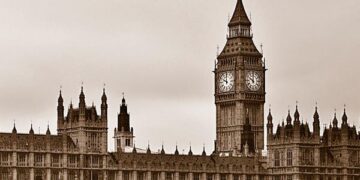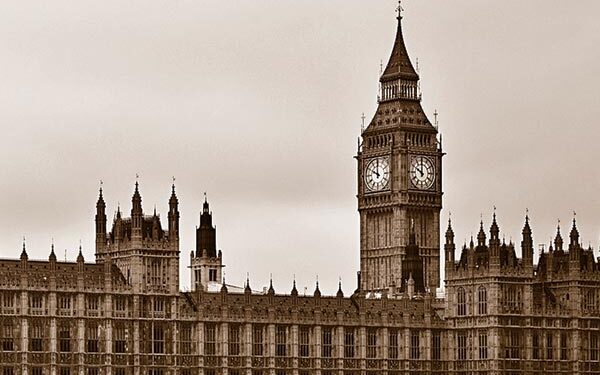We continue with the debate initiated by Lord Raj Loomba in the House of Lords on International Widows Day. Several members participated enthusiastically in the debate and highlighted the plight of widows in different parts of the world
When someone is widowed, they obviously have to deal with grief and loss, but all too often there is economic uncertainty beyond that. I said uncertainty but I mean poverty, and that is the problem
 Lord Davies of Brixton (Labour) MY Lords, as previous speakers have said, we owe a debt to the noble Lord, Lord Loomba, for raising this issue today. We should also put on record our thanks for the work he has done through the foundation, in his mother’s name, to put this issue before us. It clearly does not get the attention it deserves. Thanks are due to the noble Lord for obtaining this debate today … One of the big successes of the noble Lord’s campaign was the establishment of International Widows Day, the purpose of which is to educate people about this issue—as we are doing now—to mobilise changes and the resources to achieve them, and to celebrate the successes that are possible. That is why this debate is important. When someone is widowed, they obviously have to deal with grief and loss, but all too often there is economic uncertainty beyond that. I said uncertainty but I mean poverty, and that is the problem: it leads to poverty all too often. This brings me to the focus of my remarks: a large part of that is about pensions and inadequate provision for people who have to face the problems of widowhood.
Lord Davies of Brixton (Labour) MY Lords, as previous speakers have said, we owe a debt to the noble Lord, Lord Loomba, for raising this issue today. We should also put on record our thanks for the work he has done through the foundation, in his mother’s name, to put this issue before us. It clearly does not get the attention it deserves. Thanks are due to the noble Lord for obtaining this debate today … One of the big successes of the noble Lord’s campaign was the establishment of International Widows Day, the purpose of which is to educate people about this issue—as we are doing now—to mobilise changes and the resources to achieve them, and to celebrate the successes that are possible. That is why this debate is important. When someone is widowed, they obviously have to deal with grief and loss, but all too often there is economic uncertainty beyond that. I said uncertainty but I mean poverty, and that is the problem: it leads to poverty all too often. This brings me to the focus of my remarks: a large part of that is about pensions and inadequate provision for people who have to face the problems of widowhood.
In this country, the concept of a pension gap between men and women is receiving additional attention, but we still have a long way to go before achieving solutions. It is clear that the same pattern is being followed around the world….
In the UK, pension rules by and large do not discriminate against women, although the fact that the rules as they apply to widowhood are extremely complex is a de facto problem…However, the biggest problem is the whole concept of derived rights. Women do not accrue pension rights in their own right…We need to do research on derived rights and contingent rights: women need rights to a pension that is not linked to their marital status. The third area where more work needs to be done is lack of awareness…
There is a focus on innovation and technology for gender equality, and we can very much look to technology to provide the information and support that people need to access the pension rights to which they are entitled.
 The Earl of Sandwich (CB) MY Lords, every time I hear my noble friend Lord Loomba in these debates, I feel that he personifies international development at the ground level, where it matters. Poverty, hunger and ill health are the three issues heading the UN’s priority list of sustainable development goals. Gender equality is also on the list. Women and girls who have suffered violence or rape, or been widowed or separated, deserve much more attention at the international level, and this is what they are receiving through International Widows Day.
The Earl of Sandwich (CB) MY Lords, every time I hear my noble friend Lord Loomba in these debates, I feel that he personifies international development at the ground level, where it matters. Poverty, hunger and ill health are the three issues heading the UN’s priority list of sustainable development goals. Gender equality is also on the list. Women and girls who have suffered violence or rape, or been widowed or separated, deserve much more attention at the international level, and this is what they are receiving through International Widows Day.
No one can have anything but admiration for the work of the Loomba Foundation and the efforts that my noble friend has made not only in changing lives in India but in influencing our government…
… I remember from my time in India that widows often joined credit and loan schemes in which women played a leading role, often well ahead of men, in accountancy, saving money for funerals and communal activities. We in the West, with our demands for separate living and housing, still have a lot to learn about community and the need to back up weaker members of society.
I raise the case of another neglected group: the widows of migrants and widows who themselves become refugees or migrants…. I argue that widows separated from migrant husbands are an exceptional category. If possible, they should be identified by the UNHCR well before they leave detention centres and climb into small boats.
I have seen research which shows that both the UN and the EU, in an attempt to slow migration, have been financing detention centres, mainly in Libya. These centres separate men and women, including husbands and wives, and torture and maltreat people even though they are in so-called care.…
I have visited refugee camps in different parts of the world and have seen the excellent work they do. However, after reading about Libya, I am less charmed by the UN agencies, even the International Organization for Migration, for which I had a lot of respect…
Finally, in Darfur, Sudan, reports show that women and girls are suffering violence, rape and murder on a daily basis, but access is so difficult that they are beyond international protection. I know the FCDO is doing its best to maintain programmes for them in Sudan.
















